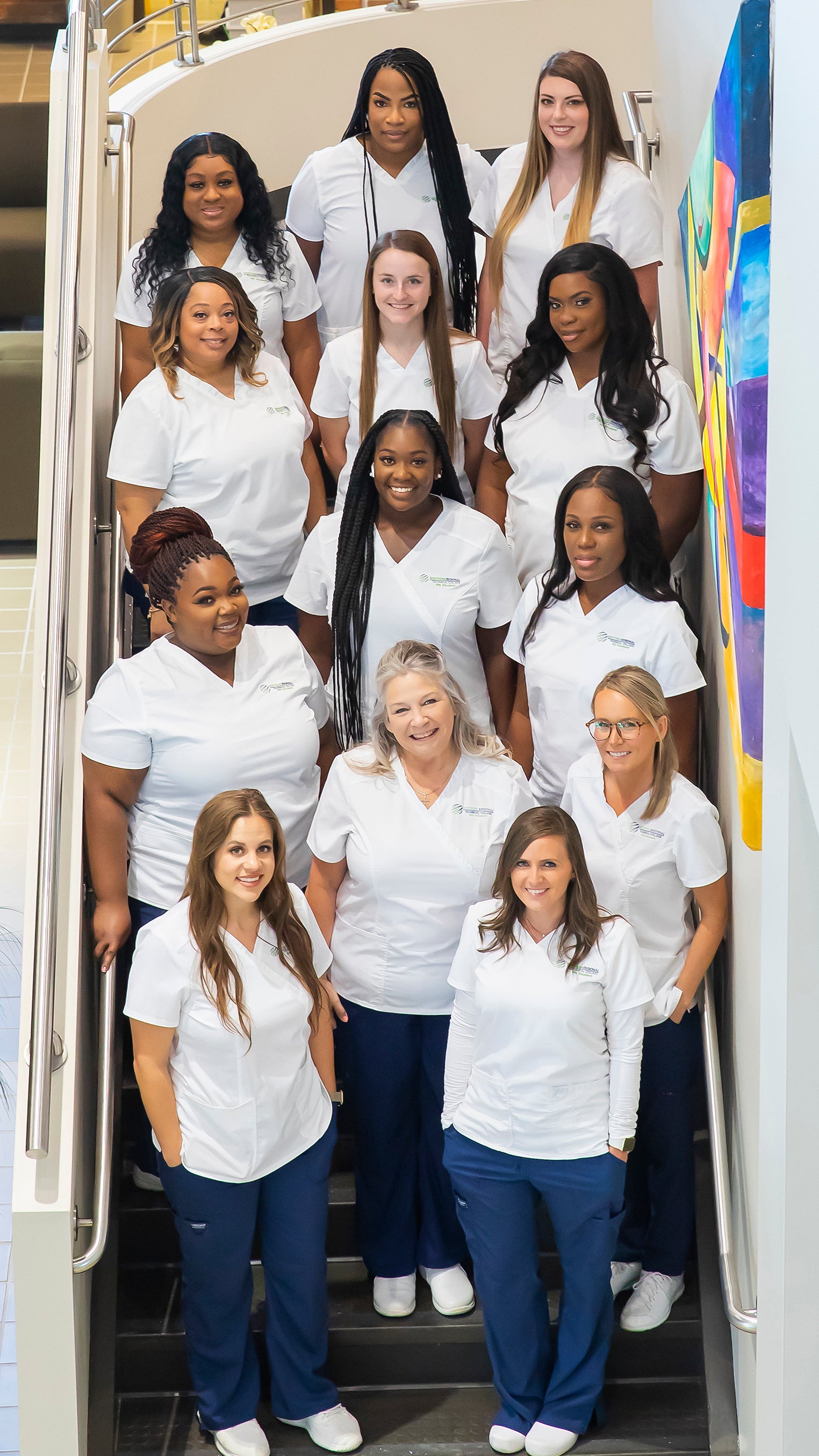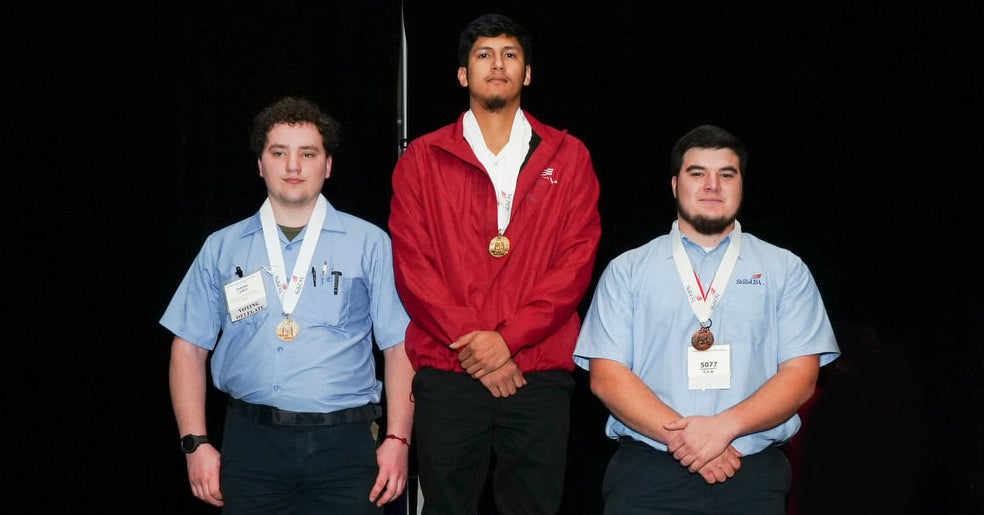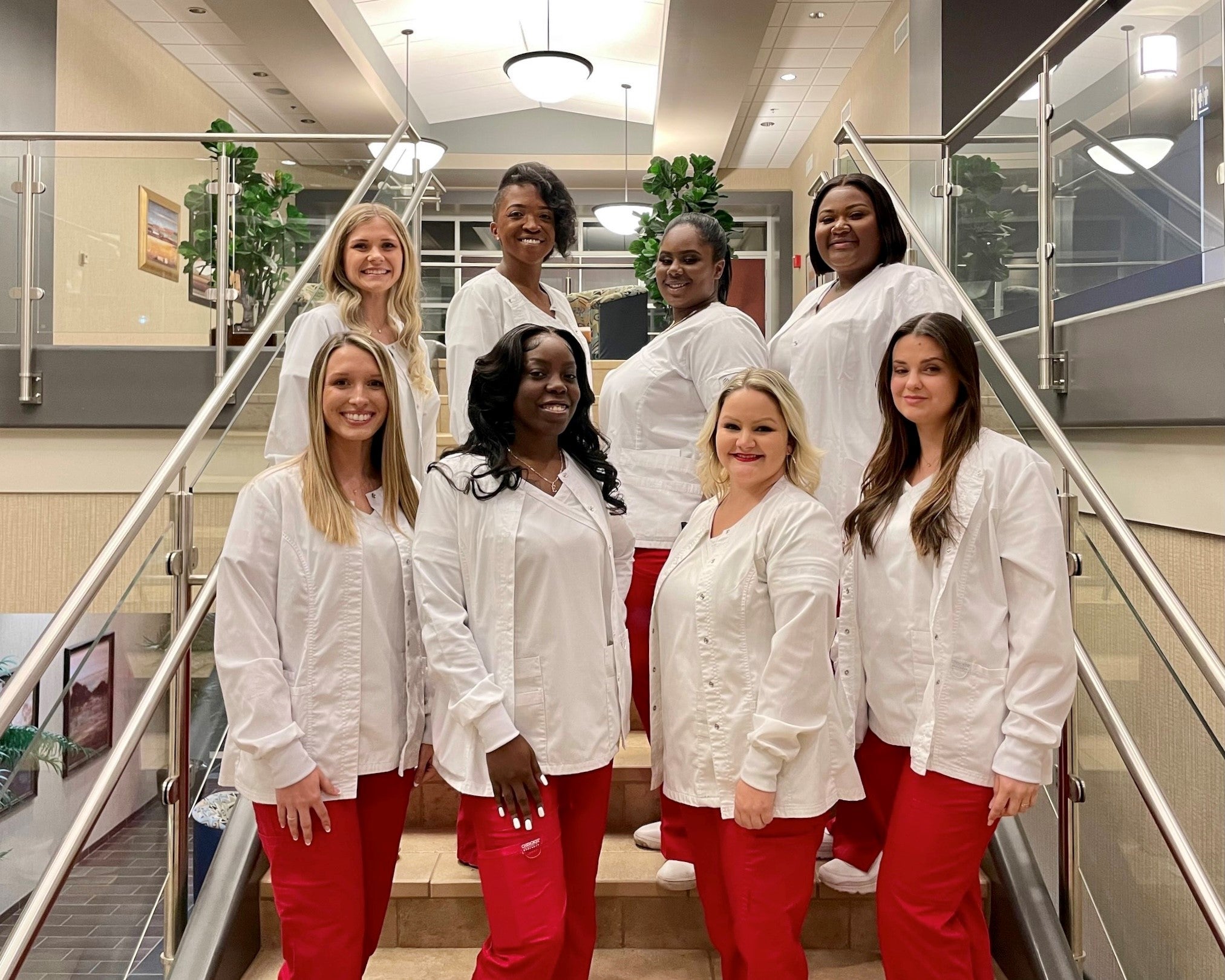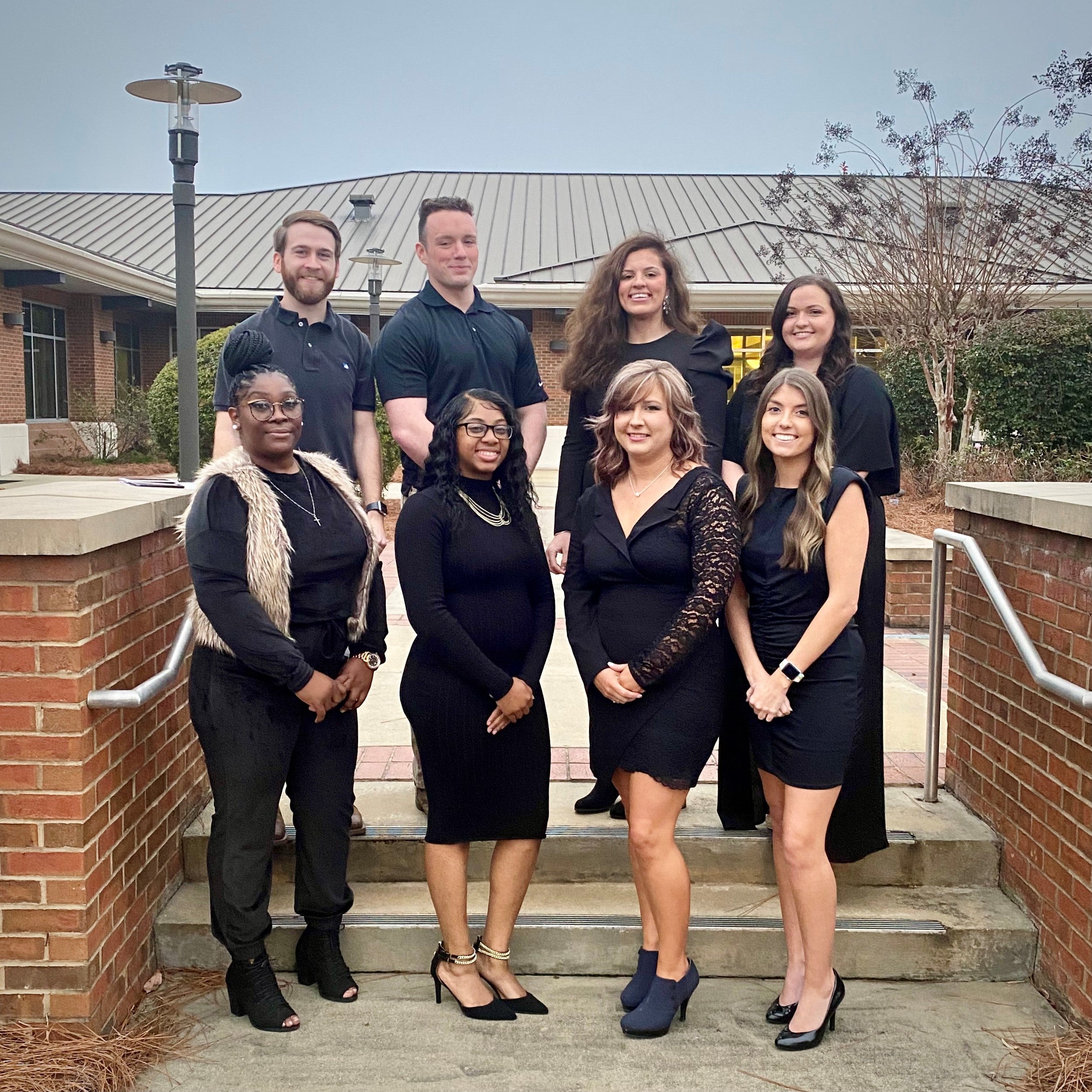New methods to help students proving successful
Published 8:50 am Friday, August 9, 2013
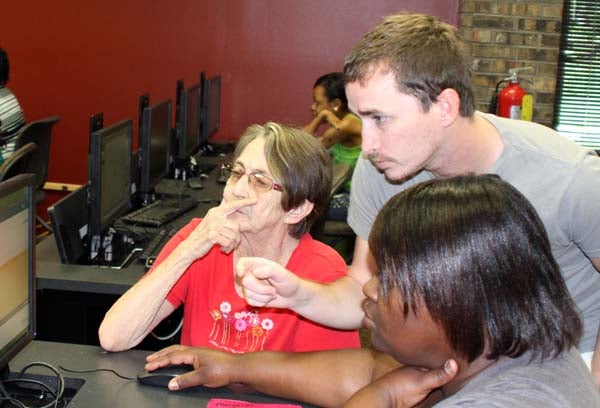
Making a point is Stephen Bass, in the middle, who is a peer mentor and tutor embedded in a pilot math class at Bainbridge State College. The students, from the left, are Jan Mason of Bainbridge and Margaret Beard of Brinson. Both students say having a peer mentor in the class has really helped them understand the subject. Their associate professor, Patti Lord, said the students like talking with someone that is not the instructor and that it makes them less anxious.
By CAROL HEARD
Bainbridge State College Communications Specialist
As colleges across the country are being pressed to effect transformation in remedial education, innovative classes instituted at Bainbridge State College have had outstanding success and are serving as models throughout the state.
By enrolling in learning support classes that are paired with college-level courses, Bainbridge State students are proving they can successfully complete their remedial coursework along with credit classes, reducing the time to degree completion and graduation.
Bainbridge State highlighted its pilot classes when it hosted the 2013 Georgia Academic Advising Drive-In Conference in April that focused on retention and graduation rates, thus addressing the nationwide efforts to increase student success. Several Bainbridge State faculty and staff members served as lecturers for the conference, which attracted approximately 90 people from across Georgia to the Charles H. Kirbo Regional Center.
“Higher education has no choice but to change the way we help under-prepared students,” said Bainbridge State Vice President for Academic Affairs Tonya Strickland. “Nationwide, fewer than half of students placed in remedial courses will ever complete them. Therefore, we are thrilled to see the success of our faculty-initiated pilots.”
For example, last fall and spring semesters’ pass rates in traditional remedial reading at Bainbridge State was 35 percent, but 66 percent of students who took remedial reading as a co-requisite with a college-level history class passed history at the same rate as their classmates who did not have to take the reading course.
The passing rate in remedial math when paired with college algebra was 92 percent, compared to a passing rate of just 43 percent for remedial math by itself.
Wesley Whitehead, Bainbridge State’s director of Learning Support and an assistant professor of mathematics, said his students have responded very positively to the paired remedial math and college algebra course.
“It is something new. It is something different. The students thought that the paired class was double the work because when they signed up for it, they had to sign up for two classes,” Whitehead said. “But every assignment they did was at the college-algebra level.”
Before students can enroll in college, they are required to take the COMPASS placement test, which determines if they need remedial courses in reading, math and/or English. Depending upon their test performance, some students could be required to take as many as six learning support courses in addition to their college-level coursework.
Whitehead said some of his students have told him they are excited about the class because they had already taken the learning support math class twice but had not passed the COMPASS exit exam despite doing well in the class. Students who pass the paired class are not required to take the COMPASS exit exam.
“That’s a big motivator for those students because they are tired of spinning their wheels. They want to get out of the class,” Whitehead said. “They are taking a credit-level class, so it is a little bit more accelerated, but that is the whole point.”
Bainbridge State is also offering an integrated reading, writing course for students who have English and reading learning support requirements.
“Disciplinary Literacy is designed to provide students who place in both learning support English and reading courses the opportunity to progress through both areas in a single semester,” Whitehead said. “Disciplinary Literacy does not require the COMPASS exit as long as the student earns a 75 or higher in the course.”
One component of this course will implement the use of MyFoundationsLab. This program is specifically designed to create learning paths for students based on the results of the individual’s diagnostic test that will be given at the beginning of the semester. Recently, Bainbridge State was awarded 300 MyFoundationsLab access codes to be used for the Disciplinary Literacy courses.
“Students are typically required to purchase the access code in addition to the textbooks for such courses,” Whitehead said. “However, we are excited to provide these codes to our students at no additional charge this semester. We believe this integrated course will promote student success in our learning support population.”
Peer Mentoring
As added aid, peer mentors – or tutors – are embedded in all the college’s paired courses and pilot learning support courses.
Bainbridge State student Margaret Beard of Bainbridge said this is the first time she has had a peer mentor in any of her classes, and her remedial math class is the one she is performing the best in, thanks in part to her peer mentor — Stephen Bass.
“He is always right there to help,” Beard said.
Patti Lord, an associate professor of math who is teaching a pilot modular math class, said the peer-mentoring program seems to give some students that extra boost they may need.
“Talking with someone that is not the instructor seems to make them not so anxious,” Lord said.
As students are working on problems in the classroom, Bass said he is hopping from one student to the next assisting them.
Bass said the students he has helped have said they believe the college is more involved in their success.
“What we are looking for is being able to help the students pass their class, and not just pass them but to understand what’s being taught,” he said.


